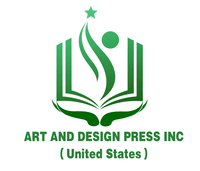Volume 1,Issue 3
Modified Shengmai Yin Decoction for Treating Dysphagia Due to Bulbar Paralysis
Dysphagia due to bulbar paralysis is a challenging issue in neurology. Professor Zhou Shaohua, through studying ancient medical texts and drawing on years of clinical experience, has employed the method of nourishing “Qi”, nurturing the heart, and controlling saliva, using modified Shengmai Yin Decoction to treat dysphagia caused by bulbar paralysis with remarkable efficacy.
[1] Saito T, Hayashi K, Nakazawa H, et al., 2016, Clinical Characteristics and Lesions Responsible for Swallowing Hesitation After Acute Cerebral Infarction. Dysphagia, 31(4): 567–573.
[2] Gao W, 2019, Gao Weibin’s Ten Acupuncture Masterpieces: New Acupuncture Therapy for Neurological Disorders. Beijing: China Medical Science Press.
[3] Ramsey D, Smithard D, Kalra L, 2003, Early Assessments of Dysphagia and Aspiration Risk in Acute Stroke Patients. Stroke, 34(5): 1252–1257.
[4] Chun M, Kim D, Chang M, 2017, Comparison of Dysphagia Outcomes Between Rostral and Caudal Lateral Medullary Infarct Patients. International Journal of Neuroscience, 127(11): 965–970.
[5] Daniels S, Pathak S, Mukhi S, et al., 2017, The Relationship Between Lesion Localization and Dysphagia in Acute Stroke. Dysphagia, 32(6): 777–784.
[6] Guo C, Huang X, 2024, Notes from Following the Master: A Record of Zhou Shaohua’s Clinical Experience. Beijing: China Medical Science Press.
[7] Chen X, Li Z, 2016, Research Progress on Traditional Chinese Medicine Treatment of Dysphagia After Stroke. Henan Traditional Chinese Medicine, 36(7): 1290–1293.
[8] Zhang Z, Zhao S, Chen G, et al., 2011, Randomized Controlled Study on Treating Dysphagia After Stroke Mainly by Deep Needling of Chonggu Acupoint. Chinese Acupuncture & Moxibustion, 31(5): 386–389.

